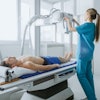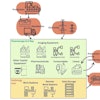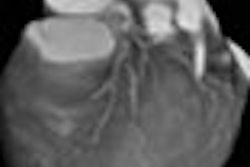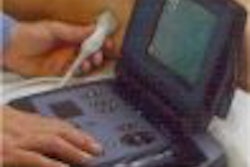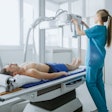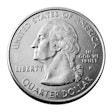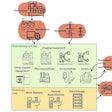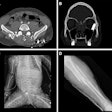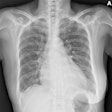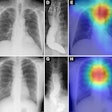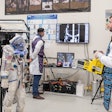Digital x-ray vendor Wuestec Medical is hoping to soon resolve a Food and Drug Administration enforcement action that led to the confiscation of equipment related to the firm's legacy conventional x-ray systems.
The seized inventory consists of parts for film-based x-ray systems that Wuestec discontinued last year, according to Eric Lazo, Wuestec's vice president for marketing. The FDA action, which occurred in January, does not affect sales of the Mobile, AL-based vendor's digital x-ray product line, which has been the focus of the company's marketing efforts.
"(The seized material) was literally piles of sheet metal and bolts, and a couch and some empty boxes," said Lazo. "We did have couple of items we brought in to see if we wanted to sell them or not, and two or three C-arms."
In a document filed January 12 in U.S. District Court in Mobile, the FDA claimed that the seized materials "are adulterated ... in that the methods used in, and the facilities and controls used for, their manufacture, packing, storage, and installation are not in conformity with current good manufacturing practice requirements for medical devices...."
Wuestec's formal response to the court filing was a denial of all the allegations. Although the FDA will not answer questions about ongoing investigations, Wuestec said it believes a resolution based on negotiations with the agency is imminent.
"We have no intention of taking this matter any further, because we intend to reach an agreement (with the FDA)," said Sonia Livingston, the company's senior manager for regulatory affairs. "This is all about Wuestec being willing to do the right thing, and to seek the education as to what the right thing is."
The FDA's requirement for current good manufacturing practices (CGMP) includes extensive documentation, an area where Wuestec historically has had problems.
"Most important was the lack of documentation of the manufacturing process," Livingston said.
In a 1999 warning letter to Wuestec, the FDA said an "inspection [of Wuestec's facility] revealed inadequate complaint and Medical Device Reporting Procedures [MDRs], incomplete design control and preventive action procedures, inadequate labeling procedures, incomplete master records, and inadequate Device History Records."
According to the court documents filed by the FDA in January, the agency issued warning letters to Wuestec for CGMP violations in 1993 and again in 1999, and conducted two inspections of Wuestec's manufacturing operations in 1995.
Although the CGMP violations cited were for improper documentation, procedures, training, and quality control, the FDA maintained that the violations "... can produce devices that may malfunction and pose a potential public health hazard."
"The FDA requires current good manufacturing process. Wuestec historically has not been good about writing it down," said Livingston, who joined the company last fall. "All devices may malfunction or cause potential hazard. Our fault is not labeling 'distributed by Wuestec.' In theory, this could cause safety problems, but we are buying products that are approved. Wuestec is not the original manufacturer of anything that generates radiation."
Livingston said it's not that Wuestec wasn't doing the right things, but that they have been inconsistent with documentation.
"The FDA view is that if you don't write it down, you can't prove you've done it," she said.
Founded by Swiss native Bruno Wuest in 1991, Wuestec initially was a film-based radiography company, selling conventional x-ray systems, C-arms, and radiography/fluoroscopy tables. In 1996, however, Wuestec began moving to the digital domain, focusing on charge-coupled device (CCD) detectors. It stopped selling its film-based product line last year.
Wuestec's shift to digital x-ray began to gather momentum in 1998, via a joint venture with Korean electronics giant Samsung. The companies collaborated to establish an R&D firm, DigiX, based in Edmonton, Alberta. DigiX took Samsung's CCDs and integrated them into the gantry design of Wuestec's SuperStand 4000 x-ray system.
"We got to the point where it could be a viable product, and we purchased the remaining amount of that joint venture [DigiX] from Samsung, which converted its investment to shares of Wuestec," Lazo said. "Samsung has a minimum investment, and they help us when it's beneficial."
Shipments of Wuestec's DX2000 DR systems began in May 2000, and in December, Wuestec announced availability of a pay-per-use financing option for the scanner. The vendor currently has orders for more than 100 of its digital systems, Lazo said.
By Robert Bruce
AuntMinnie.com contributing writer
May 1, 2001
Related Reading
RealTimeImage, Wuestec ink licensing deal, April 6, 2001
Wuestec offers pay-per-user DR program, December 7, 2000
Wuestec begins shipping DR systems, May 17, 2000
Click here to post your comments about this story. Please include the headline of the article in your message.
Copyright © 2001 AuntMinnie.com
